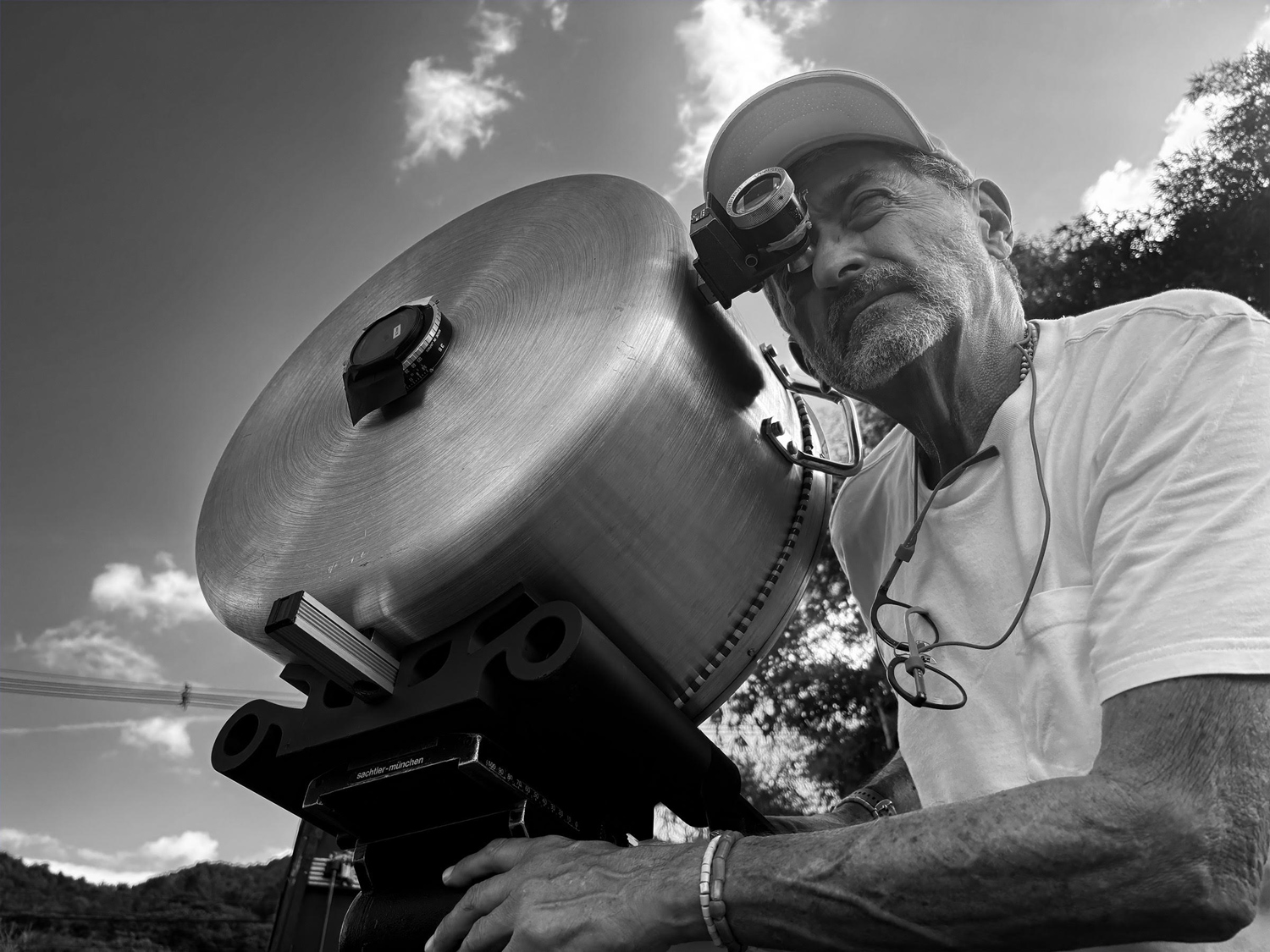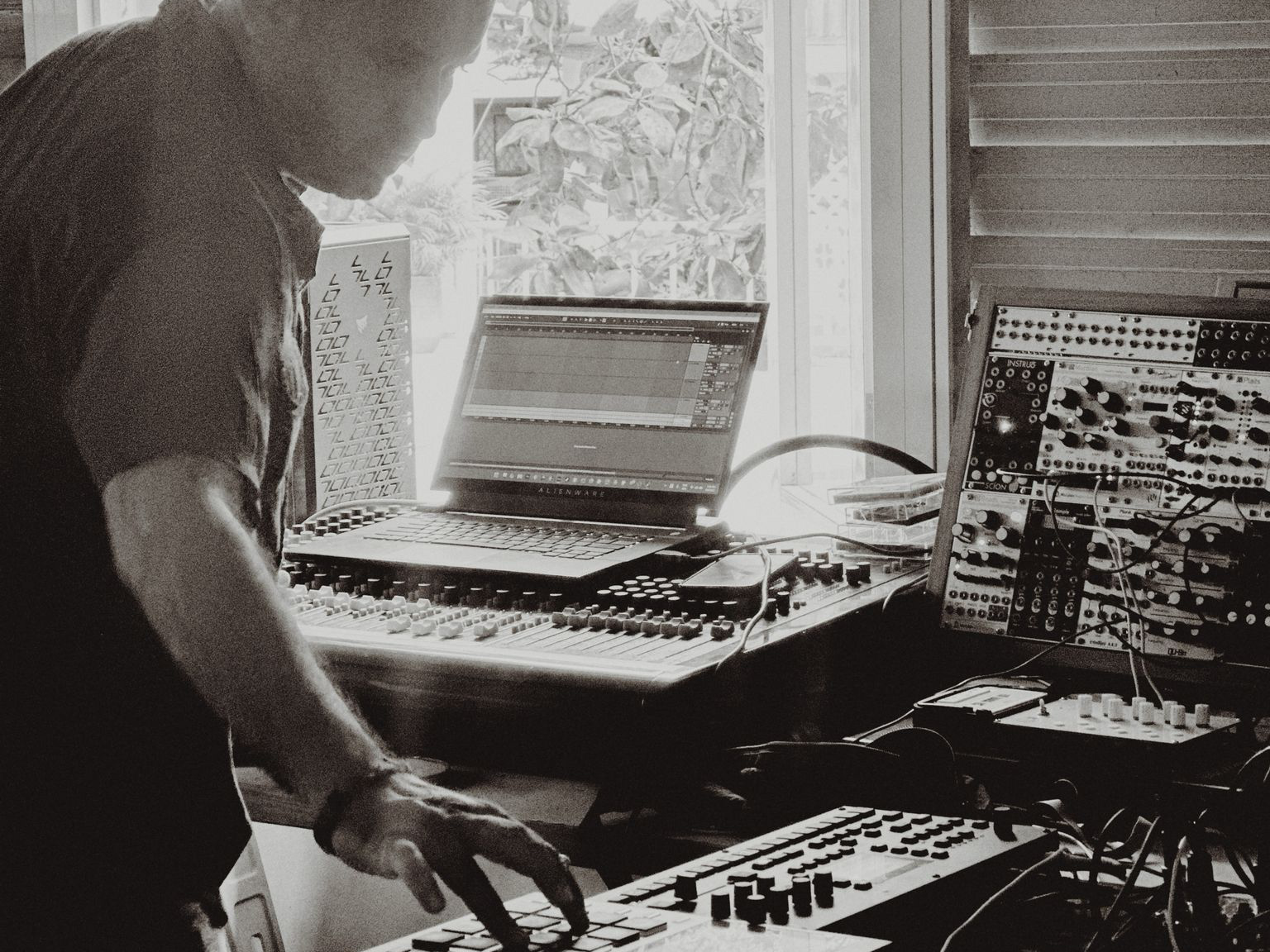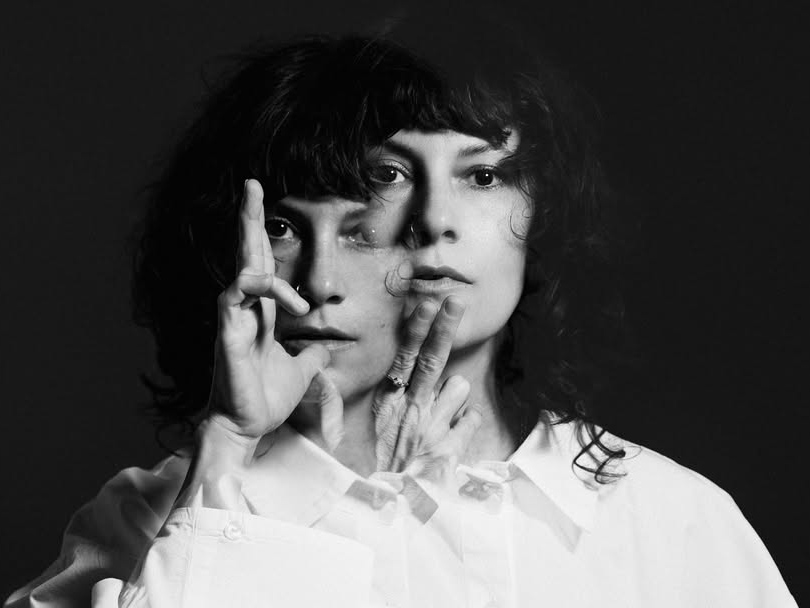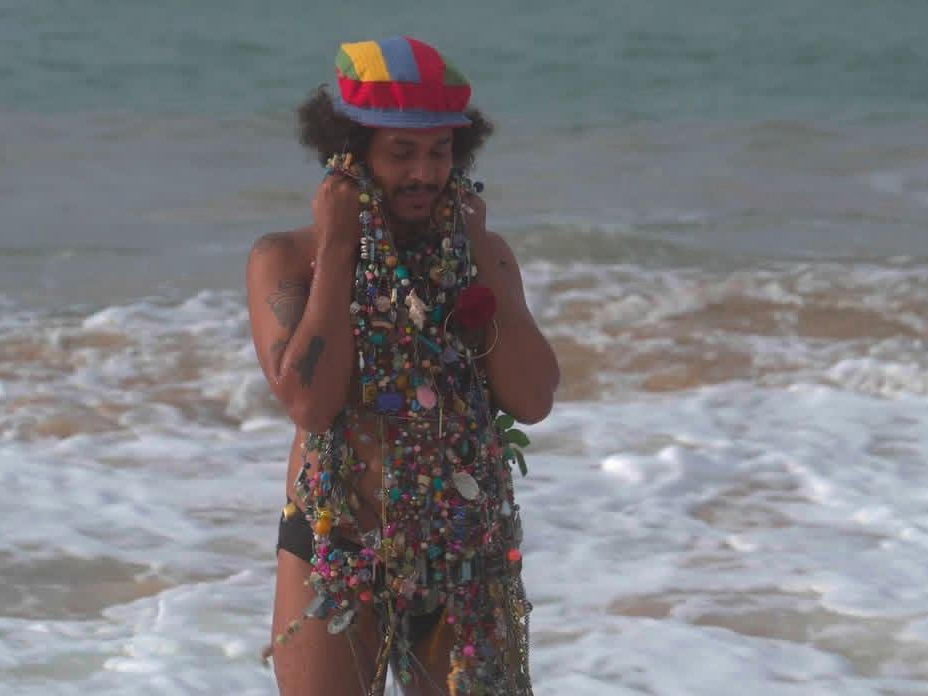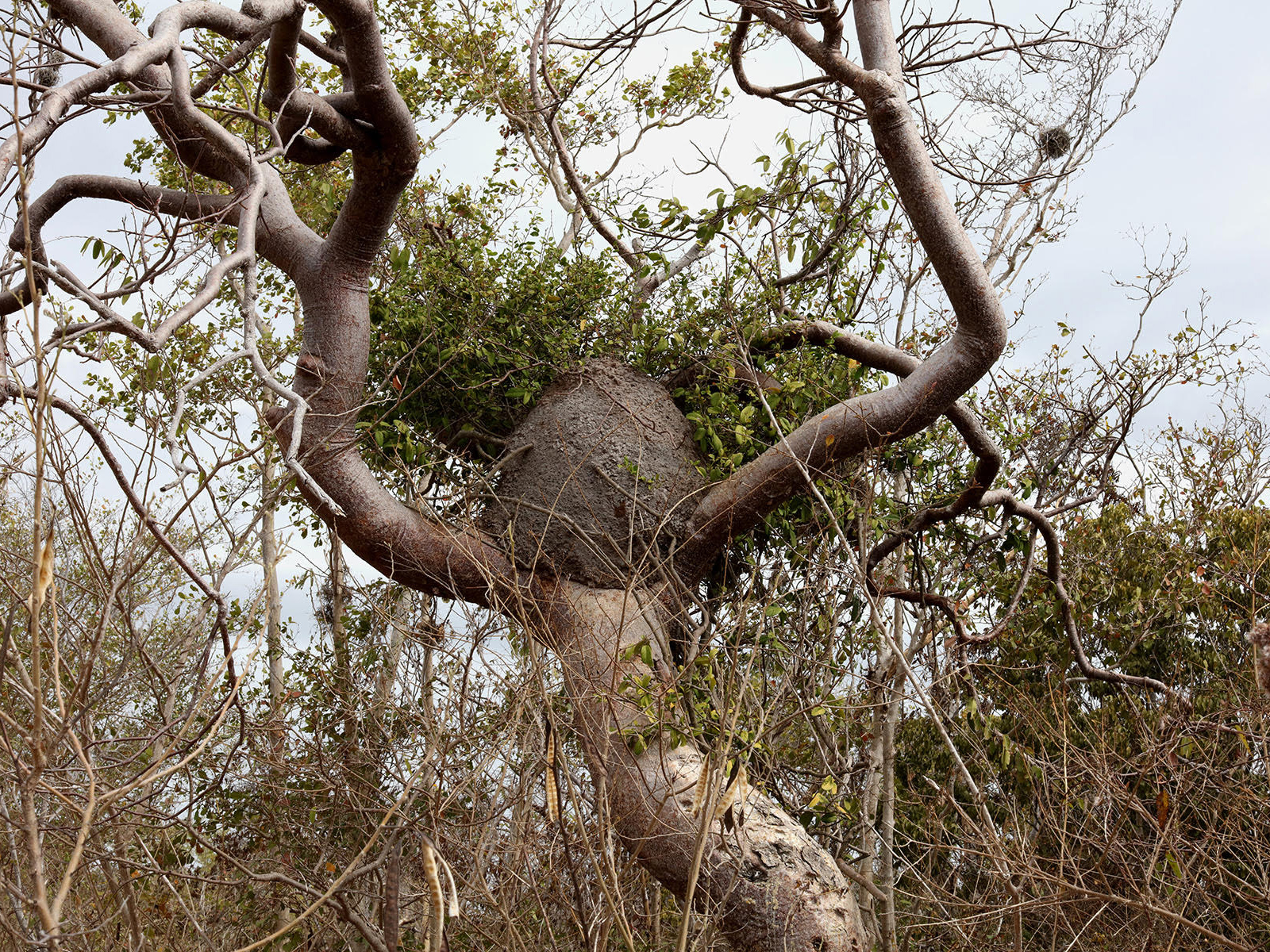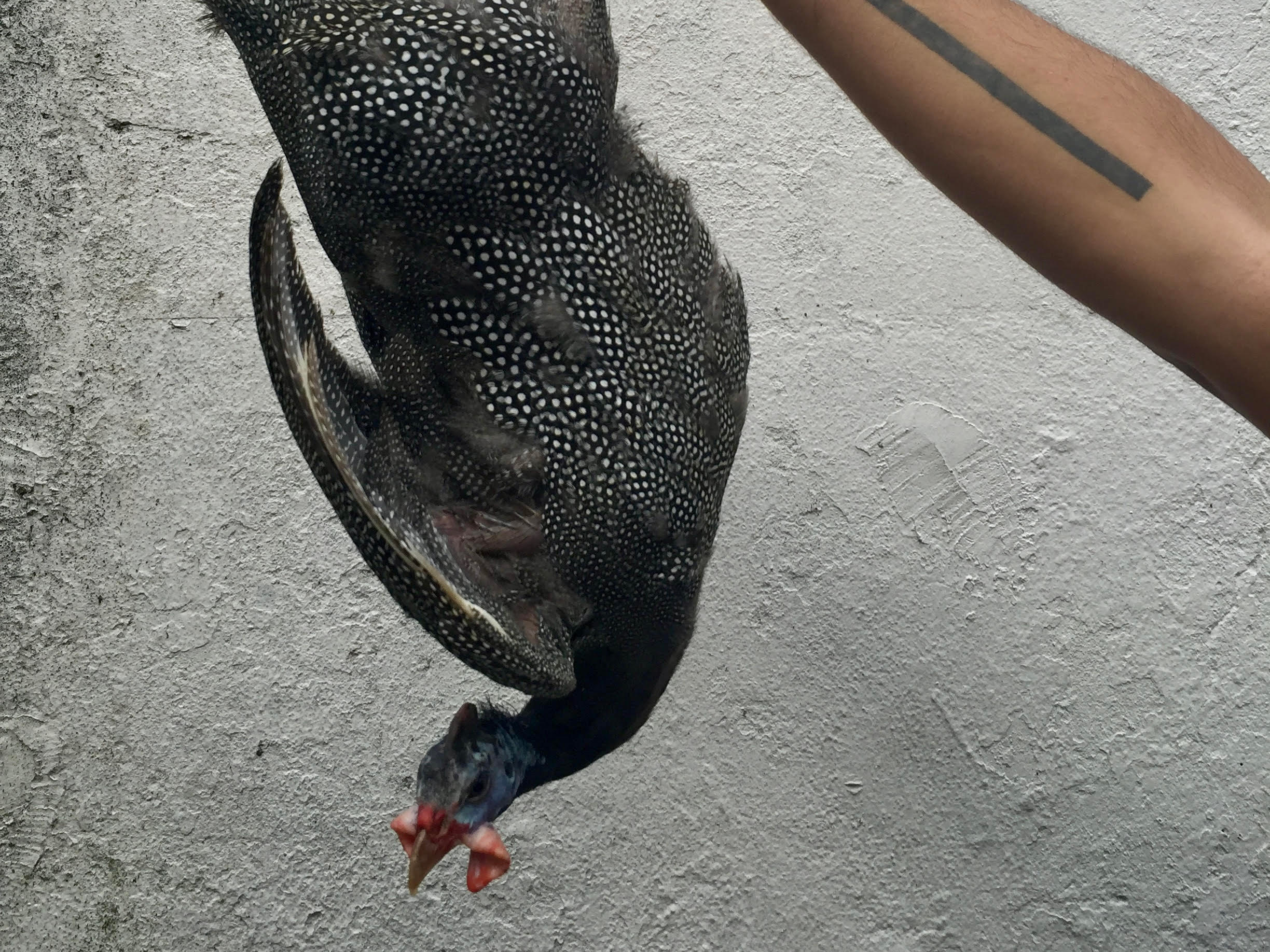Tudo começou com uma conversa. Durante nossa primeira visita a Salvador como coletivo, nos contaram, na Casa do Boulevard, sobre as festas que ali aconteciam na década de 1960. Nesses encontros, preparava-se uma sopa coletiva – que, segundo quem a vivenciou, não apenas nutria os corpos, mas também sustentava um espírito de experimentação que ajudou a moldar o imaginário cultural da Tropicália.
Esse momento tornou-se, para nós, o caldo-base da ideia – não como registro histórico, mas como experiência compartilhada que despertou perguntas: o que acontece quando um projeto é cozido de forma lenta, em companhia, a partir do que se lembra e se imagina juntos? Foi a partir daí que surgiu Transmigração – não como uma exposição tradicional, mas como uma plataforma feita de gestos de escuta, movimento e criação coletiva, conectando memória, território e presença em Salvador, ancorada na Casa do Boulevard.
Em Porto Rico, o artista Jochi Melero, também conhecido como o “Mago da Sopa”, preparou um caldo santo, compartilhado entre muitos. O pote usado no ritual foi depois transformado em uma câmera pinhole, com a qual Melero percorreu a ilha capturando imagens. O que antes era um recipiente de cozinha tornou-se um dispositivo de visão – um contêiner de luz, memória e transformação. Esse caldeirão-câmera integra a exposição, funcionando como escultura e arquivo visual.
Em Salvador, a preparação pública da Sopa de Rumores começa na Feira de São Joaquim, onde são reunidos ingredientes e utensílios. O cozimento é acompanhado por uma invocação sonora de Mima, que veste uma peça criada por William Murphy, posteriormente exibida como escultura têxtil, marcando a transição entre corpo, voz e objeto.
O projeto se expande com contribuições de Michael Linares e Fabián Vélez, que apresentam uma instalação sonora fitoacústica traduzindo os sinais elétricos das plantas em som, e de Pablo Guardiola, cuja instalação fotográfica se concentra na flora caribenha e no ato de observar por meio de imagens de arquivo. Os utensílios e materiais utilizados – colheres, panos, panelas, tecidos – são preservados como artefatos ativados, carregando vestígios de uso e experiência compartilhada.
Aqui, fazer uma curadoria é convocar memória. Só caldeirão é “curado”, nos sentidos ritual e conceitual. As relações entre os objetos revelam uma rede onde função, simbolismo e presença se entrelaçam.
Transmigração não é uma exposição estática, mas um quadro vivo. Opera como uma metodologia curatorial, um princípio de transformação e ressonância que propõe novas formas de habitar corpos, linguagens, memórias e territórios – ainda cozinhando, ainda tornando-se.
Informação
Endereço
Pivô Boulevard Boulevard Suiço, 11A Nazaré Salvador BA
Horário de funcionamento
Segunda a Sábado: 14h às 19h
Programa
Ativação do Pivô Boulevard
Sábado, 6 de setembro de 2025, 16h Pivô Boulevard, Boulevard Suiço, 11A, Nazaré Salvador BA
Abertura da exposição
Domingo, 7 de setembro de 2025, 12h Pivô Boulevard, Boulevard Suiço, 11A, Nazaré Salvador BA
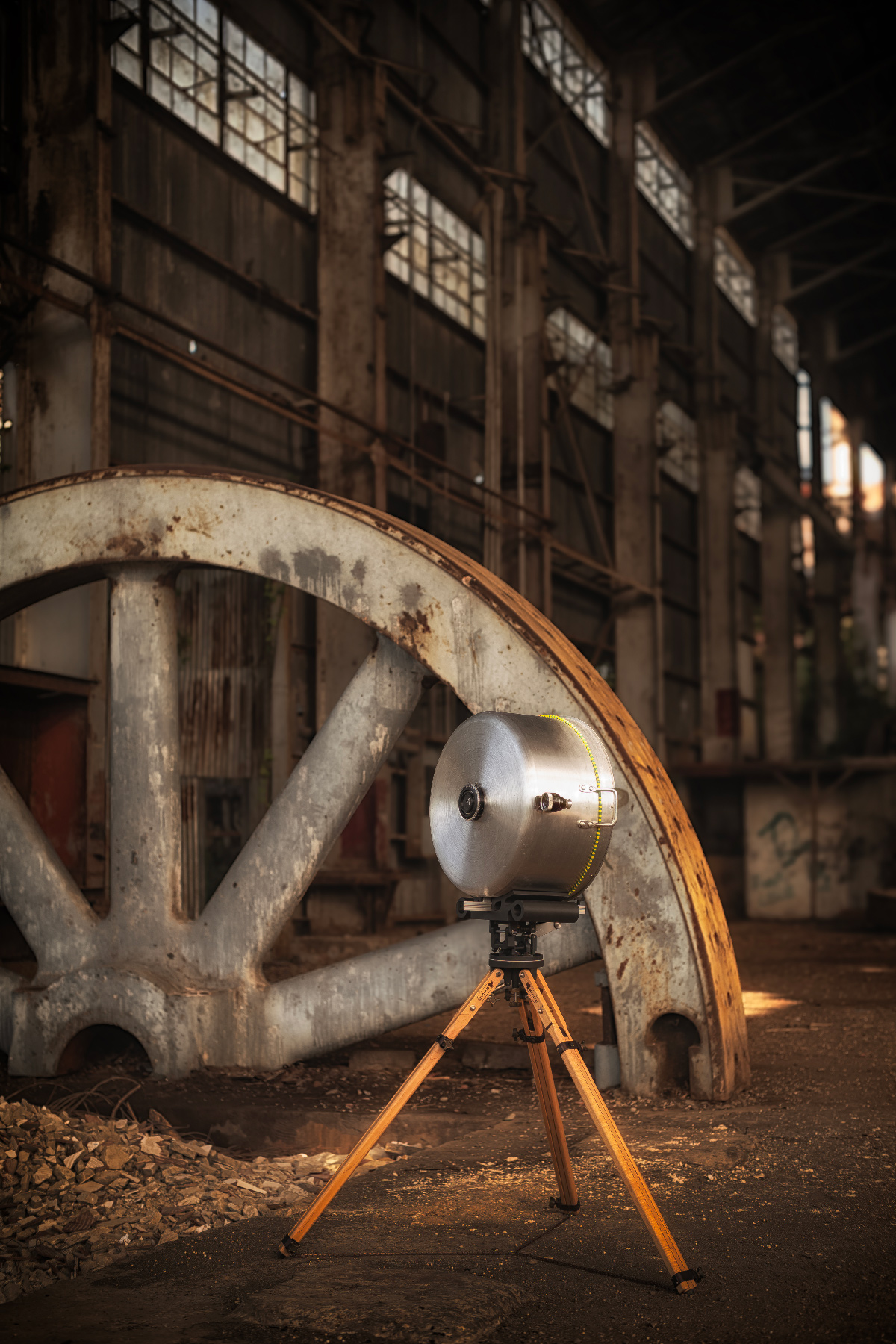
Pivô
O Pivô é uma plataforma autônoma de arte contemporânea fundada em 2012, dedicada ao intercâmbio, à pesquisa e à experimentação artística. A instituição tem como missão central refletir sobre a prática artística e contribuir para seu entendimento como linguagem própria de pensamento e participação na cultura visual, na sociedade e na política, operando como espaço de proposição, reflexão, investigação e experimentação. Este propósito se desenvolve através de um programa contínuo que inclui projetos comissionados, exposições, residências artísticas, publicações e programas públicos, criando condições para a criação e circulação de ideias em colaboração direta com artistas, curadores e públicos, em escala nacional e internacional.
O Pivô Copan, primeira sede da instituição, está instalado no icônico edifício Copan, no centro de São Paulo, onde consolidou essa abordagem experimental e colaborativa. Em 2023, o Pivô inaugurou sua segunda sede em Salvador: o Pivô Boulevard, localizado no Boulevard Suíço, casarão histórico que foi ponto de encontro de movimentos como a Tropicália e o Cinema Novo. Esta plataforma multidisciplinar fortalece o compromisso da instituição com a descentralização e a construção de redes culturais em diálogo com diferentes contextos.
A expansão em Salvador continuará com a abertura do Pivô Coaty, na Ladeira da Misericórdia, ocupando edifícios projetados por Lina Bo Bardi e João Filgueiras Lima. Nas três sedes, o Pivô compartilha o desejo de ocupar e reativar locais historicamente significativos, transformando-os em centros culturais vibrantes que fomentam o diálogo artístico e o engajamento comunitário. Esse novo capítulo reafirma o compromisso com a circulação de saberes situados e a construção de ecossistemas culturais diversos.
Hoje, o Pivô opera em rede, privilegiando dinâmicas de intercâmbio que valorizam diferenças e especificidades. Mais que espaços físicos, constitui um campo dinâmico de diálogo artístico e investigação contínua que já acolheu centenas de artistas em diferentes momentos de suas trajetórias.
Beta–Local
A Beta-Local é uma organização sem fins lucrativos fundada em 2009 em Porto Rico. Sua missão é criar e manter espaços e tempos dedicados ao desenvolvimento de práticas artísticas contemporâneas em Porto Rico e no Caribe. Desde a sua criação, atua como uma iniciativa liderada por artistas, cultivando relações de longo prazo que priorizam a troca de conhecimentos, a colaboração e a experimentação. Por meio de seus programas e projetos, a Beta-Local consolidou uma rede cultural ativa que busca explorar e ativar práticas artísticas em contextos locais, fomentando novas formas de produção, circulação e reflexão crítica, tanto dentro quanto fora dos circuitos artísticos tradicionais. Seu trabalho articula uma visão coletiva da prática artística como força motriz de transformação social e cultural, entrelaçando pedagogias experimentais, processos de pesquisa e abordagens transdisciplinares.
OtherNetwork
OtherNetwork é uma instituição cultural descentralizada que conecta espaços de arte independentes. Em seu núcleo estão centenas de projetos baseados em contextos locais, que respondem diretamente às necessidades de artistas. Entendemos “independente” como um termo fluido e específico a cada contexto e buscamos continuamente explorar o que isso significa para agentes culturais em diferentes localidades ao redor do mundo.
Visite othernetwork.io
Siga para obter atualizações
Créditos
Uma exposição do ifa – Institut für Auslandsbeziehungen, com curadoria da Beta-Local, realizada no Pivô Salvador, com obras de Jochi Melero, Fabián Vélez, MIMA, William Murphy, Pablo Guardiola e Michael Linares.
Artistas
Jochi Melero, Fabián Vélez, MIMA (feat. Julio Caldas), William Murphy, Pablo Guardiola, Michael Linares
Equipe Pivô
Fundadora e direção artística
Fernanda Brenner
Diretora executiva
Carolina de Sá
Diretora institucional
Jaqueline Santiago
Gerente de programas
Ramon Martins
Gerente de comunicação
Aline Valadares
Coordenadora executiva - Projetos internacionais
Estela Santana
Coordenadora de projetos
Renata Furtado
Coordenadora do Pivô Pesquisa
Taina Azeredo
Coordenadora de produção
Cássia Viana
Assessora financeira
Julie Schlossman
Produtora
Ivy Alvmeida
Analista de comunicação
Ian Reis
Assistência de produção
Lucas Abner, Murilo Silva
Assistente administrativa
Mayra Victorino
Serviços gerais
Mateus Asipá
Limpeza e manutenção
Francisca Márcia Ferreira de Sousa, Hungria Freitas da Silva
Colaboradores
Audiovisual
Pedro Marques
Coordenadora laboratório formativo
Vanessa Orewa
Assessoria leis de incentivo
Clarice Magalhães, Amanda Leones
Assessoria jurídica
Caio Mariano Advogados, Montenegro Castelo Advogados associados, Pannunzio Trezza Advogados
Contabilidade
Quality Contabilidade
Segurança
Givaldo Silva Visibilidade Segurança
Motorista
Iron Andrade
Beta–Local
Curadores
Michael Linares, Pablo Guardiola
Diretores
Michael Linares, Pablo Guardiola
ifa – Institut für Auslandsbeziehungen
Gerenciamento de projeto
Nina Frohm
Departamento de exposições itinerantes
Sabiha Keyif, Nina Frohm, Valerie Hammerbacher, Sabina Klemm, Clea Laade, Alexander Lisewski, Clemens Wildt
OtherNetwork
Conselho diretor
Quentin Creuzet, Domitille Debret, Colin Keays, Federico Martelli
Direção criativa
Cookies (Federico Martelli, Alice Grégoire, Clément Périssé)
Equipe de pesquisa
Samantha Modisenyane, Abraham Tettey, Camila Alegría, Matheus dos Reis, Camilo Quiroga
Concepção do site & Identidade visual
F451 (Quentin Creuzet, Domitille Debret)
Editor
Colin Keays
Gerenciamento de projeto
ifa Visual Arts Department (Nina Frohm)
Tradução e revisão
Adriana Francisco
OtherNetwork é um projeto colaborativo que conecta espaços de arte independentes ao redor do mundo, iniciado pela Cookies em parceria com o ifa – Institut für Auslandsbeziehungen.
